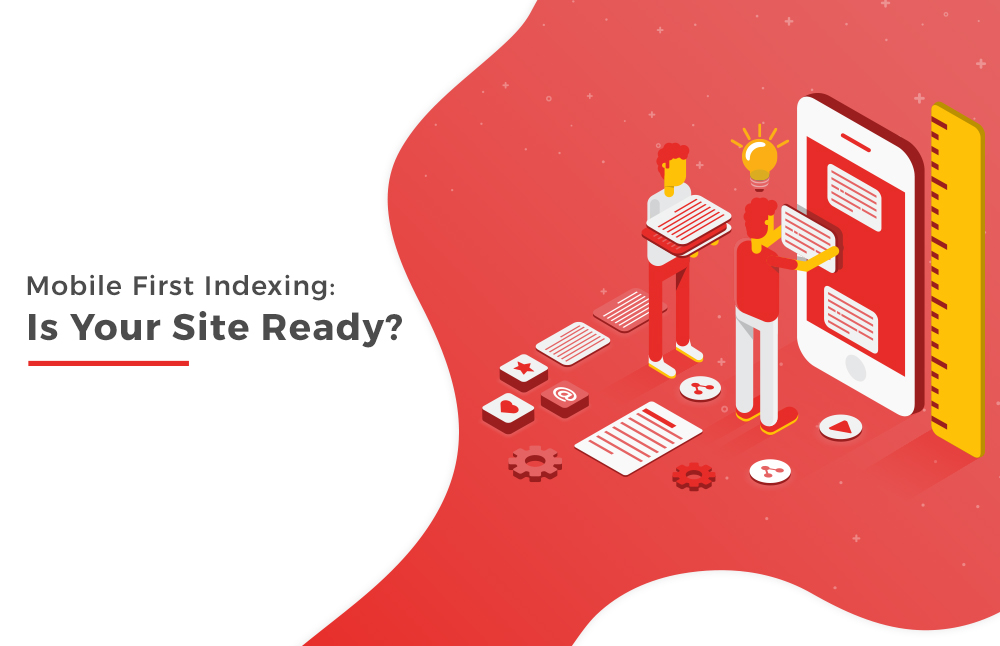
Google’s search algorithm is constantly evolving to improve user experience, and the latest change could spell danger for older websites. Google has responded to the ever-increasing number of mobile searches by favoring mobile websites. They first expressed this preference via the Webmaster blog in 2016. This post detailed plans to base all search results on each website’s mobile version, rather than the desktop version. This mobile-first index has been rolled out to various websites gradually, based on pre-existing optimization, and will affect your website soon.
Mobile Content Is a Priority
When Google’s mobile-first indexing policy reaches your website, it may already be too late.
Before the mobile-first indexing transition, Google had one (and only one) search algorithm that determined results. This search algorithm determined the results based on the desktop version of each website, even for mobile searches. With the introduction of mobile-first indexing, the tables have turned. Instead, Google will examine the mobile version of each website, even for desktop searches. If your website does not have a mobile version, then Google will default to the desktop version. But, with this deferral comes a severe ranking penalty.
If your website does not have a dedicated mobile version, then you risk losing business to a competitor that does. Trying to compete in the internet marketing world without a mobile optimized website is like riding a donkey down the L.I.E. — it just won’t work.
The Transition Starts
With This (Random) Email
Unfortunately, business owners have no control over when Google will begin evaluating the mobile version of the website, rather than the desktop version. This transition is happening slowly, so as to give businesses the time they need to bolster their mobile websites. However, Google will not wait forever– eventually, your website will make this transition, ready or not.
There’s no warning– only an after-the-fact memo.
If you want to keep the rankings that you’ve worked hard to earn (or invested in), then you need to go mobile now.

Building a Mobile Website Requires a Professional’s Touch
The process of building a fully capable mobile website takes time, so starting the process early on is critical.
- Responsive Design: Having a website that dynamically adjusts to fit the respective screen size is crucial.
- Content: The mobile version of your website should contain the same content as your desktop website (if not more)– including blog posts, service pages, and other pages.
- Schema Markup: Structured data is written differently for mobile and desktop websites.
- Metadata: Optimizing page titles and meta descriptions for the mobile version requires an approach that is different from desktop pages.
- International: Websites that appeal to international audiences need coordinated hreflang tags.
- Sitemaps: Informing Google about the structure of the website and its various pages through an XML sitemap provides an easy way for the search engine to find content quickly and easily.
- Search Console: Verify the mobile version of your website.
What Does this Mean for You?
If your website is already optimized for mobile, then you should have nothing to worry about. With this transition in mind, all of the websites that we built within the past two years are already optimized for the mobile-first index. However, examining each aspect of the website’s mobile performance will enhance your chances to rank high, and beat competitors.
Businesses with older websites have cause for concern. If your website was developed over four years ago, then it will not meet the rigorous technical standards of Google’s new mobile-first indexing. In this case, building a dedicated mobile version, along with a possible desktop redesign, is the smartest move.
But, a simple redesign can fix this issue. Our Long Island SEO company can easily update the structure, coding and meta data of the website to optimize it for mobile rankings.
No Mobile Version? Expect Decreased Rankings and Reduced Exposure
Google is currently in the midst of implementing these changes. It may be a month, or a year, but Google will change the way it indexes your website sooner or later, and without warning.
Logic Web Media can ensure that your website is prepared for this transition. With experts in both coding and SEO, our team can build a robust mobile website for your business, enabling it to beat out local competitors in searches.